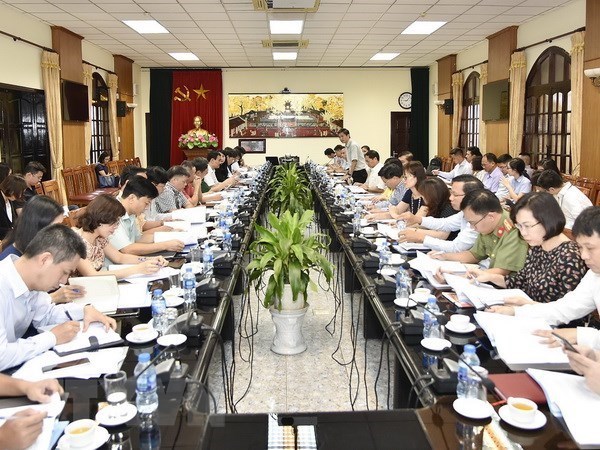
Chargé d'Affaires of the Singaporean Embassy in Vietnam Tan Wei Ming said the event’s theme “ASEAN 4.0: Entrepreneurship and the fourth Industrial Revolution” matches the priorities of the WEF and the Association of Southeast Asian Nations (ASEAN).
ASEAN can adapt to new conditions, he said, suggesting the ten-member group equip its residents with skills and knowledge and improve the quality of human resources among its member nations.
Besides, ASEAN should focus on innovation and self-resiliance to meet the requirements of the fourth Industrial Revolution and a changing world, apply new technologies and ensure that none are left behind during development, the diplomat said.
ASEAN is the world’s sixth largest economy with a combined population of 630 million, of whom 260 million are internet users. The number is expected to climb to 480 million in 2020.
About 60 percent of Vietnam’s 93-million population are under 35 years old and able to quickly access new technologies, with 55 percent of the population internet users.
The country is striving to become one of the top ten software outsourcing providers in the world, with about 1 million labourers in the information-technology sector.
Google and Temasek Foundation International forecast that the internet economy of Southeast Asia will hit 200 billion USD by 2025, equivalent to 6 percent of regional GDP.
Vietnamese Deputy Foreign Minister Bui Thanh Son suggested governments of ASEAN countries and businesses focus on self-resilience and seek new solutions to adapt to a world driven by new technologies.
Vietnam is gearing towards sustainable development through improving growth quality and utilising opportunities of the fourth Industrial Revolution to improve productivity and competitiveness, moving higher up the global value chain, he said.
Phan Hoang Lan, head of the Department of Market Development and Science-Technology under the Ministry of Science and Technology, listed several mechanisms and policies approved and issued by Vietnamese Prime Minister Nguyen Xuan Phuc to support startups.
She gave the example of a decision to support the national innovative startup ecosystem under which most of the startups focus on information and communication technology (ICT) and IT in general.
The International Labour Organisation (ILO) estimated about 56 percent of labourers in the five ASEAN member countries of Malaysia, Indonesia, the Philippines, Thailand and Vietnam are facing the risk of being replaced by new technologies in the next two decades.
Justin Wood, head of the Asia-Pacific region of the WEF, told Vietnam News Agency the fourth Industrial Revolution will impact all countries worldwide at different levels.
He said low production costs and cheap labour will no longer aid the competitiveness of countries like Vietnam, suggesting these nations prove their competitiveness in other spheres.
The WEF ASEAN 2018 is expected to feature 60 discussions, focusing on issues regarding governments, businesses and residents in ASEAN amidst the fourth Industrial Revolution.

 Previous page
Previous page Back to top
Back to top







